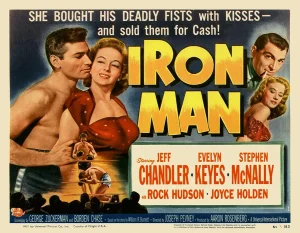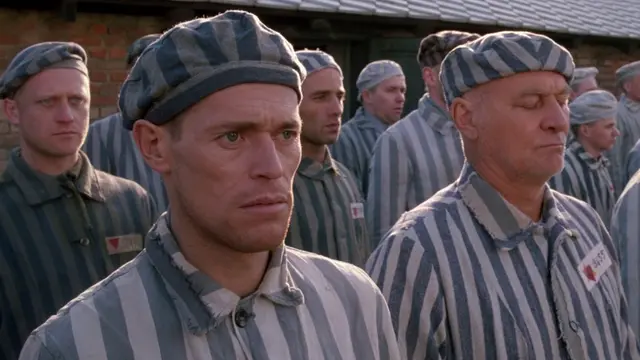
What Is Triumph of the Spirit (1989) About?
“Triumph of the Spirit” is a 1989 drama film directed by Robert M. Young, based on the true story of Greek Jewish boxer Salamo Arouch. The film is set during World War II and follows Arouch, portrayed by Willem Dafoe, as he endures the horrors of the Auschwitz concentration camp.
Arouch, a champion boxer, is taken prisoner along with his family and sent to Auschwitz. Despite the extreme conditions and constant threat to his life, Arouch is forced to fight other prisoners for the entertainment of the Nazi guards. Through his resilience and determination, he manages to survive the brutality of the camp.
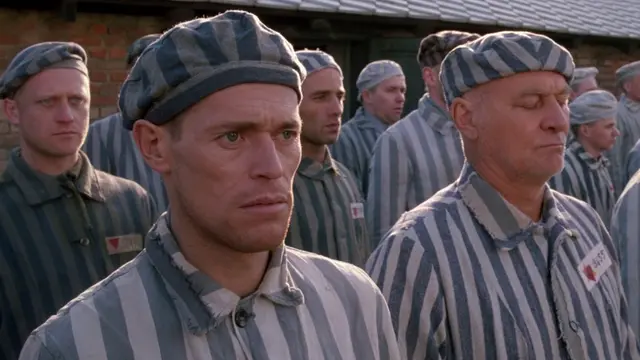
The film portrays Arouch’s struggle to maintain his dignity and humanity in the face of unimaginable suffering. It also highlights the resilience of the human spirit and the power of hope in the most desperate of circumstances.
“Triumph of the Spirit” is a harrowing and poignant portrayal of one man’s survival against all odds in one of history’s darkest chapters.
| Title | “Triumph of the Spirit” |
|---|---|
| Year | 1989 |
| Director | Robert M. Young |
| Based on | True story of Greek Jewish boxer Salamo Arouch |
| Setting | World War II |
| Protagonist | Salamo Arouch (portrayed by Willem Dafoe) |
| Plot Summary | Follows Arouch’s survival in Auschwitz |
| Themes | Struggle for dignity, resilience, hope |
| Tone | Harrowing, poignant |
| Overall Impression | Gripping portrayal of survival |
What Is the Plot of the Movie?
The plot of “Triumph of the Spirit” revolves around the true story of Salamo Arouch, a Greek Jewish boxer, and his experiences in the Auschwitz concentration camp during World War II.
The movie begins with Salamo Arouch (played by Willem Dafoe), a talented boxer, enjoying success in pre-war Greece. However, his life takes a drastic turn when he and his family are captured by the Nazis and sent to the Auschwitz concentration camp.
At Auschwitz, Arouch is forced to endure unimaginable horrors, including witnessing the deaths of loved ones and facing constant threats to his own life. Despite the grim circumstances, Arouch finds himself forced to participate in boxing matches organized by the camp authorities for their own entertainment. These matches are brutal and often to the death, with Arouch fighting for his survival against other prisoners.
Throughout the film, Arouch struggles to maintain his dignity and humanity in the face of unspeakable cruelty. He forms bonds with fellow prisoners and finds solace in memories of his family and his passion for boxing. Despite the overwhelming odds stacked against him, Arouch refuses to give up hope and continues to fight for survival.
Ultimately, “Triumph of the Spirit” chronicles Arouch’s remarkable resilience and his eventual liberation from the horrors of Auschwitz. It serves as a powerful testament to the strength of the human spirit in the face of adversity and the importance of never losing hope, even in the darkest of times.
Reasons to Watch It
“Watch ‘Triumph of the Spirit’ for its powerful performances, historical significance, and emotional impact, offering an inspiring portrayal of resilience and survival during the Holocaust.”
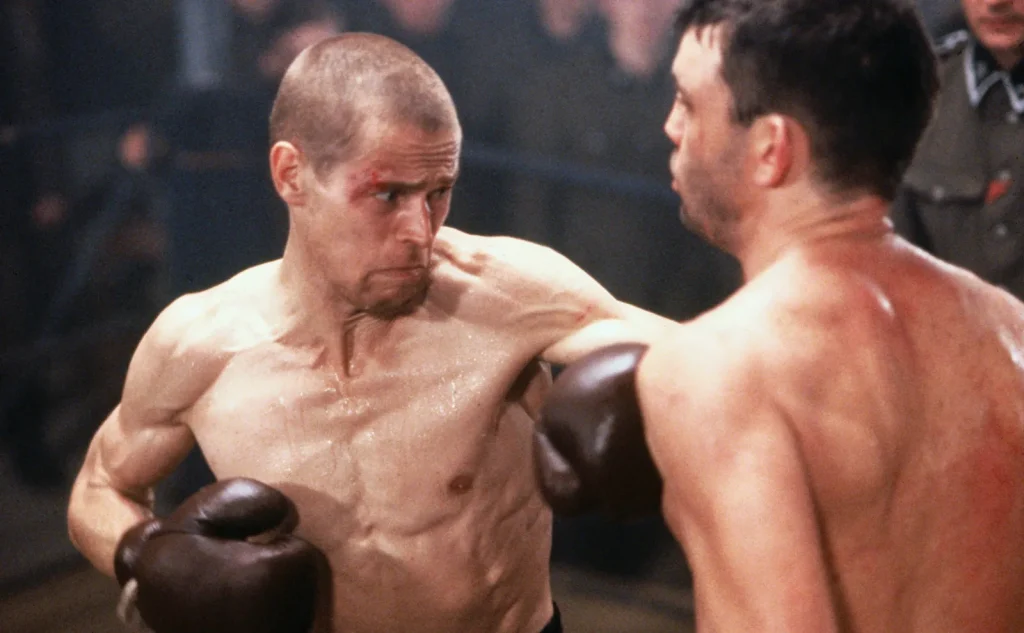
- Historical Significance:
- The film is based on a true story, offering viewers a glimpse into the atrocities of the Holocaust and the resilience of those who survived it. It serves as a reminder of the horrors of war and the importance of remembering and honoring the experiences of those who lived through such dark times.
- Powerful Performances:
- The film features strong performances from actors like Willem Dafoe, who portrays Salamo Arouch with depth and emotion. The cast effectively conveys the struggles and triumphs of the characters, drawing viewers into their harrowing journey.
- Inspiration and Resilience:
- Despite the bleakness of its subject matter, “Triumph of the Spirit” ultimately celebrates the resilience of the human spirit. It offers a message of hope and perseverance in the face of unimaginable adversity, inspiring viewers with the courage and determination of its characters.
- Emotional Impact:
- The film is emotionally powerful, evoking a range of feelings from sorrow and horror to hope and triumph. It prompts viewers to reflect on themes of survival, sacrifice, and the enduring power of love and hope.
- Educational Value:
- “Triumph of the Spirit” provides an educational opportunity to learn more about the Holocaust and its impact on individuals and communities. It can spark important discussions about history, human rights, and the consequences of prejudice and discrimination.
Overall, “Triumph of the Spirit” is a moving and thought-provoking film that offers both historical insight and emotional resonance, making it a compelling watch for audiences interested in stories of survival, resilience, and the human experience.
Is the Movie a Real or Fictional Story?
“Triumph of the Spirit” is a gripping cinematic portrayal inspired by the true story of Salamo Arouch, a Greek Jewish boxer who survived Auschwitz during World War II. Despite some dramatic elements, the film stays grounded in historical facts, shedding light on Arouch’s harrowing journey and the resilience of Holocaust survivors. Through Arouch’s tale, the movie highlights the enduring human spirit and the ability to find hope in the bleakest of times.
By immersing audiences in Arouch’s story, “Triumph of the Spirit” offers a profound insight into the collective resilience of Holocaust survivors. Through its portrayal of Arouch’s challenges and triumphs, the film celebrates human courage and the enduring power of hope. Ultimately, it honors the memory of those who endured unimaginable suffering while delivering a timeless message of perseverance.
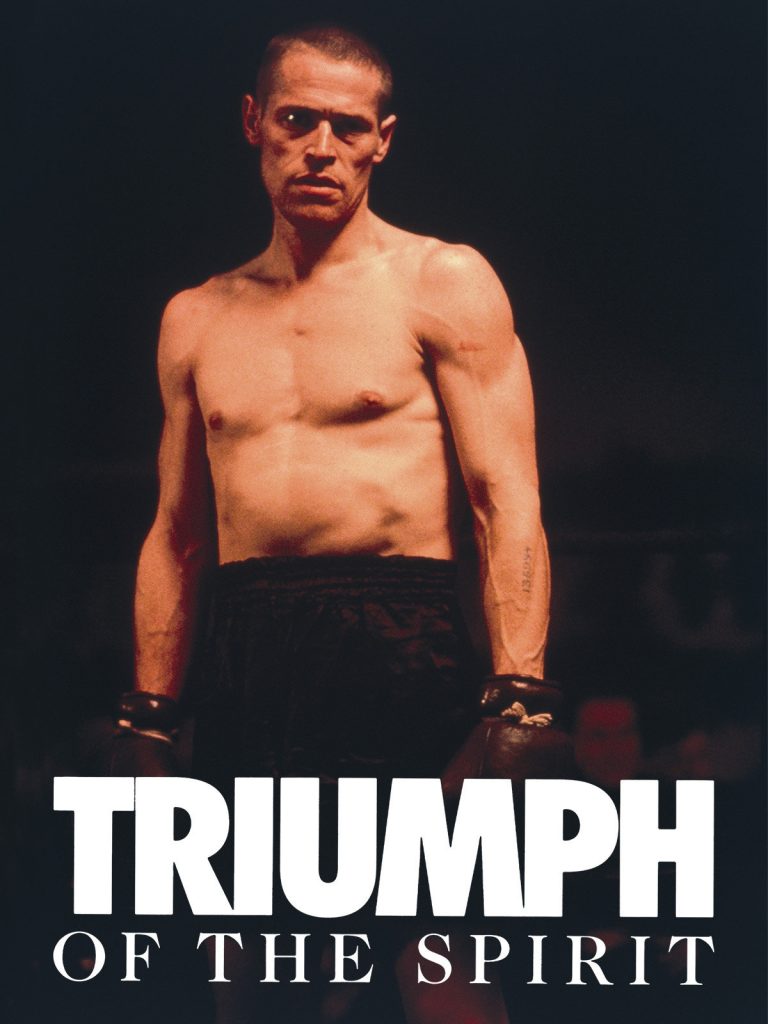
Is It Critically Panned or Acclaimed?
“Triumph of the Spirit” encountered a diverse array of critical responses following its debut. While certain reviewers lauded its compelling performances and the emotional resonance it evoked, there were others who expressed reservations regarding its treatment of historical accuracy and narrative execution. While the film did not attain unanimous acclaim, it managed to attract recognition for shedding light on a relatively overlooked facet of Holocaust history and for its poignant portrayal of the unwavering fortitude exhibited by its central protagonist amidst unimaginable adversity.
| Aspect | Description |
|---|---|
| Critical Reception | Mixed reviews from critics, with some praising its performances and emotional impact while others critiqued its portrayal of historical events and storytelling. |
| Achievements | Didn’t achieve widespread acclaim, but garnered appreciation for shedding light on a lesser-known aspect of Holocaust history and portraying the resilience of its central character. |
| Strengths | Powerful performances, emotional impact. |
| Weaknesses | Portrayal of historical events, storytelling execution. |
What Does the Movie Explore?
“Triumph of the Spirit” explores themes of survival, resilience, and the human experience amidst the atrocities of the Holocaust, offering a poignant portrayal of the triumph of the human spirit against unimaginable adversity.
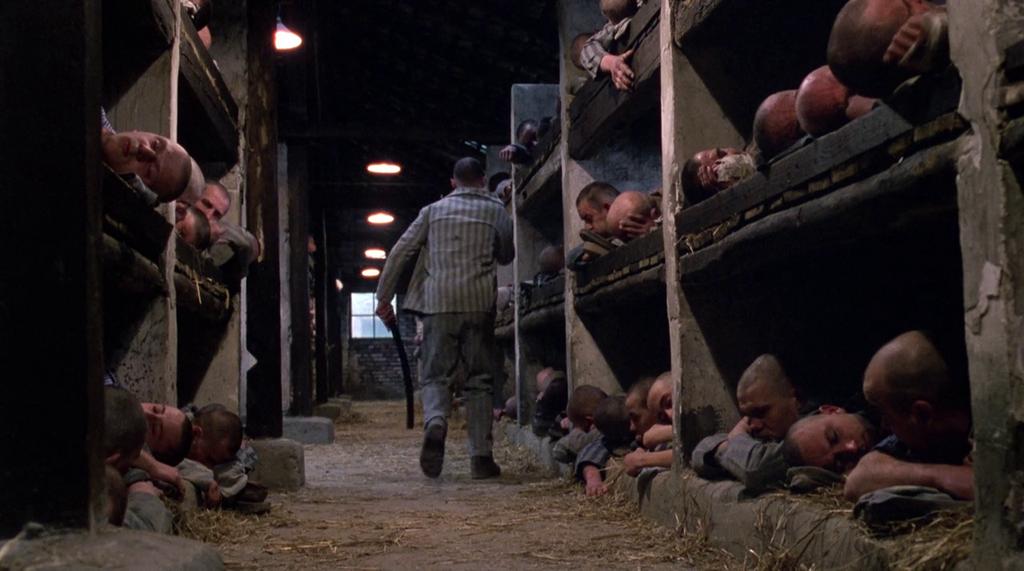
- Survival and Resilience:
- The film delves into the incredible resilience of the human spirit, particularly in the face of unimaginable suffering and adversity. It showcases how individuals like Salamo Arouch found the strength to endure the horrors of the Auschwitz concentration camp and fight for their survival against all odds.
- Humanity and Inhumanity:
- Through its portrayal of the Holocaust, the movie examines the depths of human cruelty and the capacity for both great evil and unexpected acts of kindness. It highlights the atrocities committed by the Nazis against Jewish prisoners while also depicting moments of solidarity and compassion among the inmates.
- Identity and Belonging:
- “Triumph of the Spirit” explores questions of identity and belonging, particularly in the context of the Jewish experience during World War II. It reflects on the loss of cultural heritage, family ties, and personal identity faced by those who were persecuted by the Nazis, as well as the struggle to maintain a sense of self and community in the face of dehumanization.
- Memory and Remembrance:
- The film underscores the importance of remembering and honoring the experiences of those who suffered during the Holocaust. It serves as a testament to the resilience of survivors and a reminder of the atrocities committed, urging viewers to confront the past and learn from history to prevent such horrors from happening again.
Overall, “Triumph of the Spirit” is a poignant exploration of the human condition in the most extreme circumstances, offering insights into themes of survival, humanity, and the enduring power of hope in the darkest of times.
Memorable Moments
Memorable moments in “Triumph of the Spirit” include Salamo Arouch’s poignant boxing matches, his tender interactions with his family amidst the horrors of Auschwitz, acts of resistance against oppression, and the bittersweet liberation of the camp, all weaving together to portray the indomitable human spirit amidst the darkness of the Holocaust.
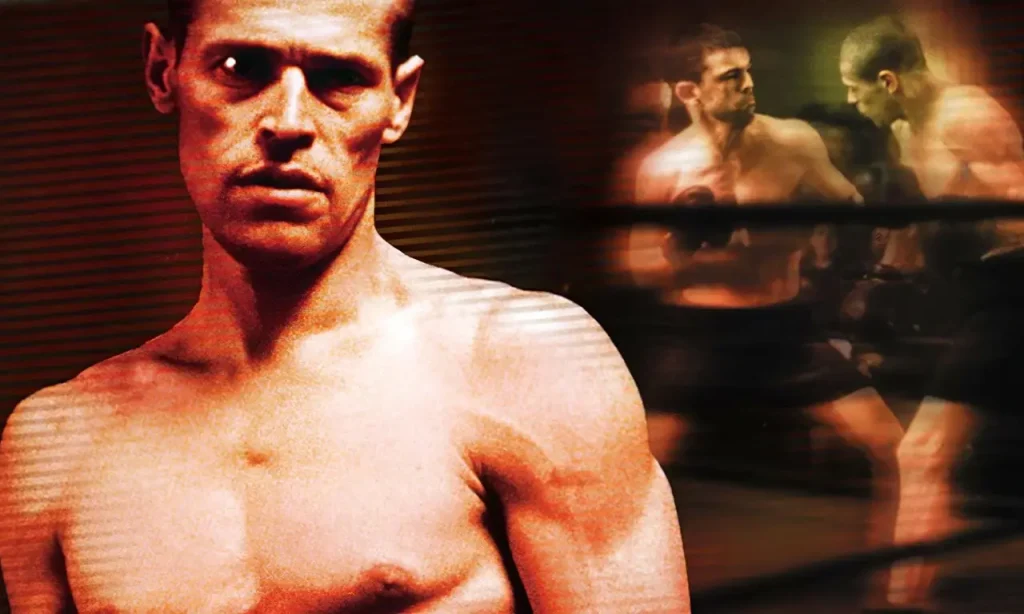
- Salamo Arouch’s Boxing Matches:
- The intense and brutal boxing matches that Arouch is forced to participate in at Auschwitz serve as gripping and harrowing moments in the film, showcasing the physical and emotional toll of the camp’s atrocities.
- Arouch’s Relationship with His Family:
- Scenes depicting Arouch’s interactions with his family, particularly his father, highlight the bonds of love and support that provide strength and solace amidst the horrors of the concentration camp.
- Acts of Resistance:
- Moments of resistance, whether through small acts of defiance or acts of solidarity among the prisoners, underscore the indomitable human spirit and the refusal to surrender to despair even in the face of overwhelming oppression.
- Liberation:
- The liberation of the concentration camp by Allied forces marks a poignant and bittersweet moment of triumph and relief, as survivors like Arouch emerge from the darkness of the Holocaust to reclaim their freedom and humanity.
- Flashbacks to Pre-War Life:
- Interspersed with the grim reality of life in the concentration camp are flashbacks to Arouch’s pre-war life, offering glimpses of happier times and emphasizing the stark contrast between the past and the present.
These memorable moments collectively contribute to the emotional impact and thematic richness of “Triumph of the Spirit,” making it a compelling and unforgettable cinematic experience.
Streaming Platforms
Availability of ‘Triumph of the Spirit’ for streaming can differ based on geographical location and agreements between streaming platforms and content providers. Below are some platforms where the movie could potentially be found:
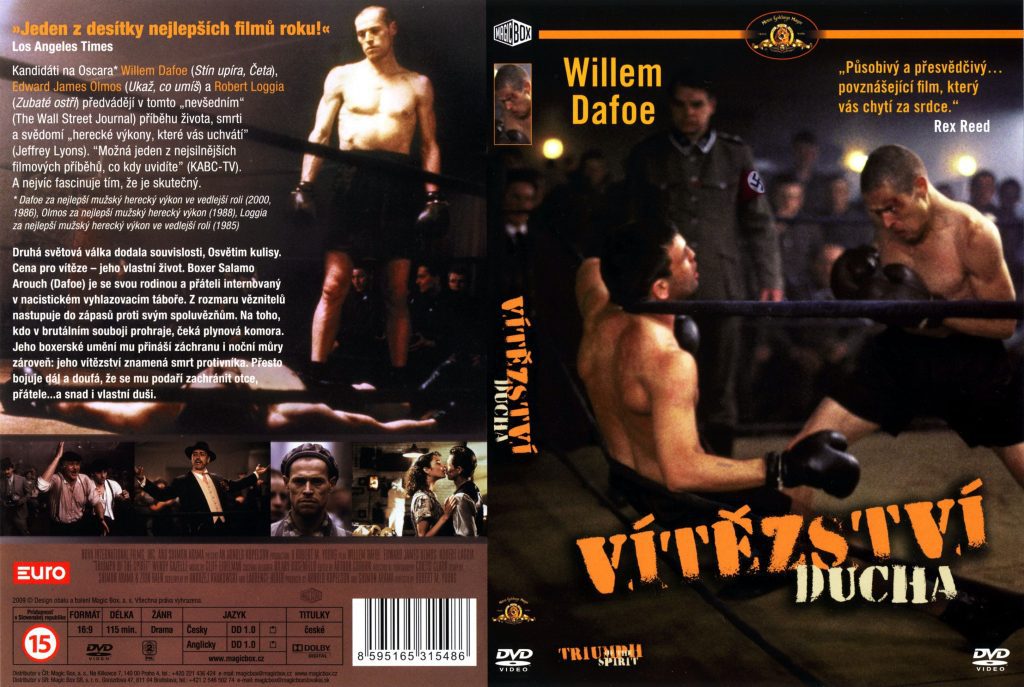
| Streaming Platform | Availability |
|---|---|
| Amazon Prime Video | Possible, check region |
| iTunes/Apple TV | Possible, check region |
| Google Play Movies & TV | Possible, check region |
| YouTube Movies | Possible, check region |
| Vudu | Possible, check region |
| Microsoft Store | Possible, check region |
| Netflix | Availability may vary |
| Hulu | Availability may vary |


